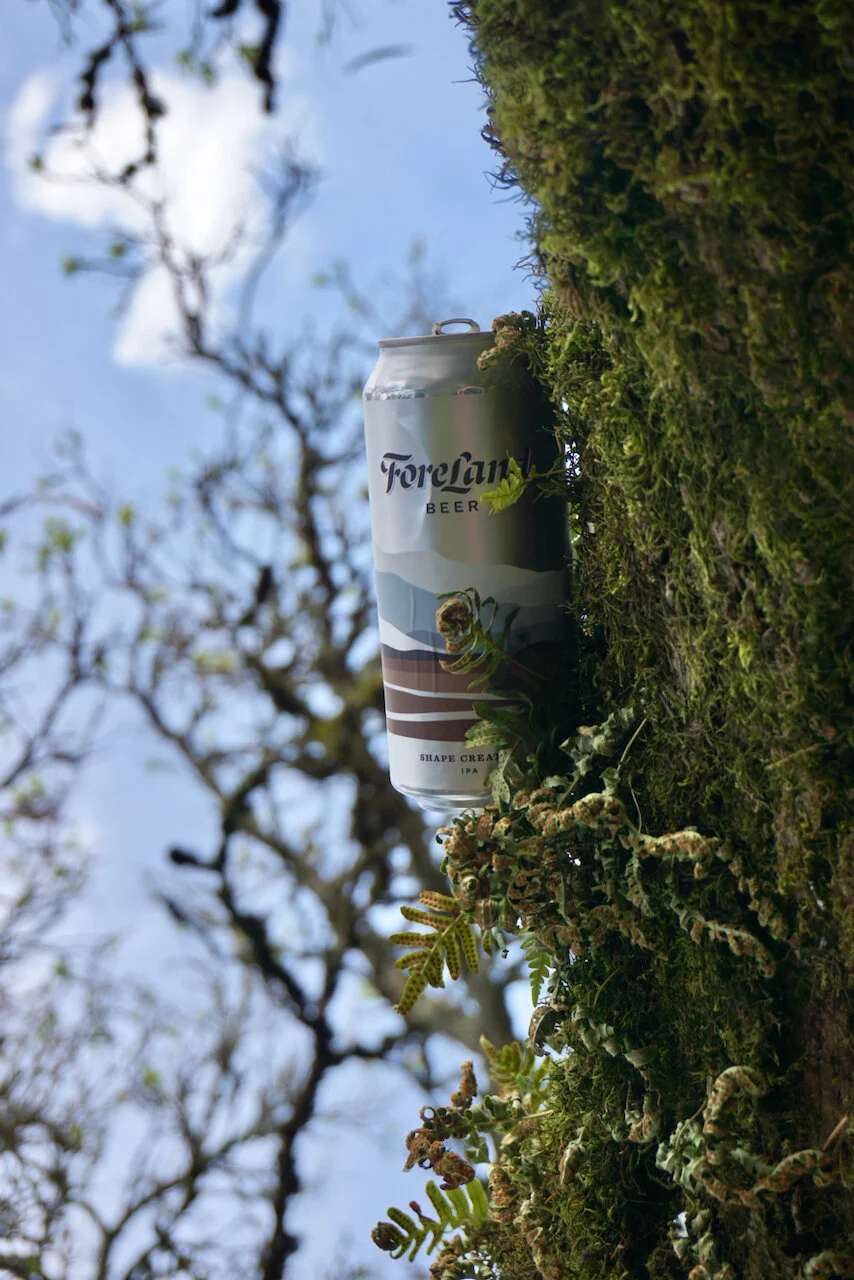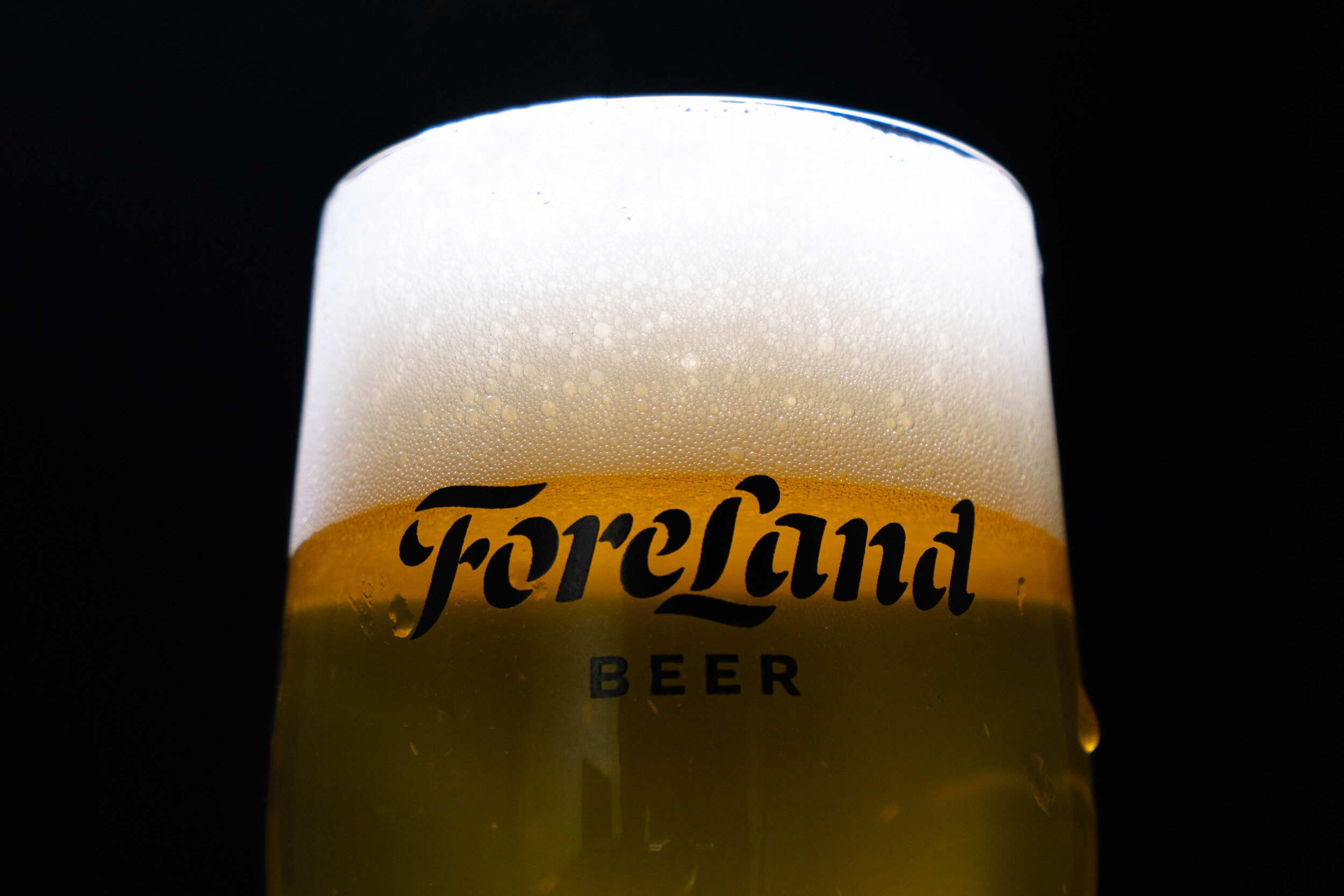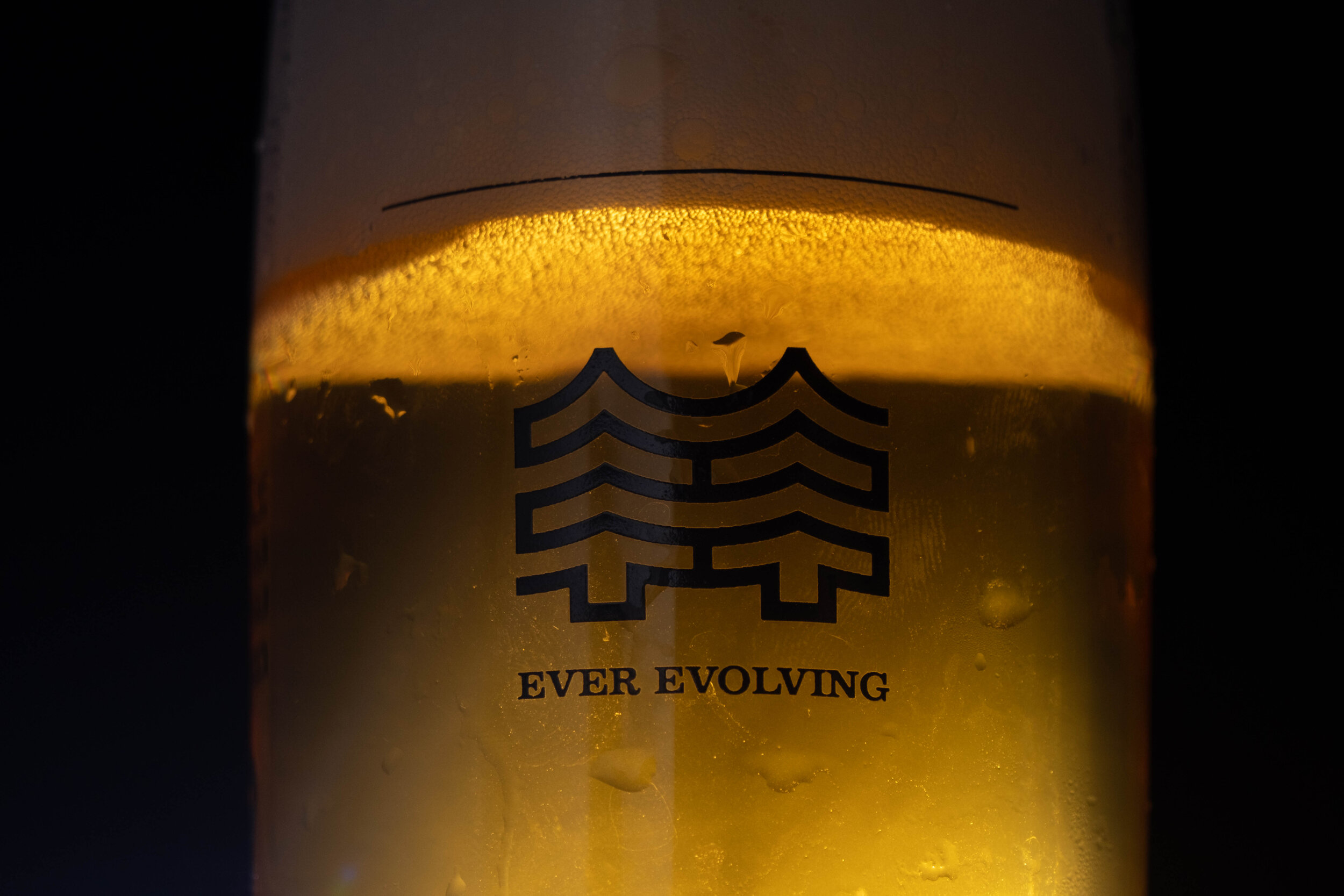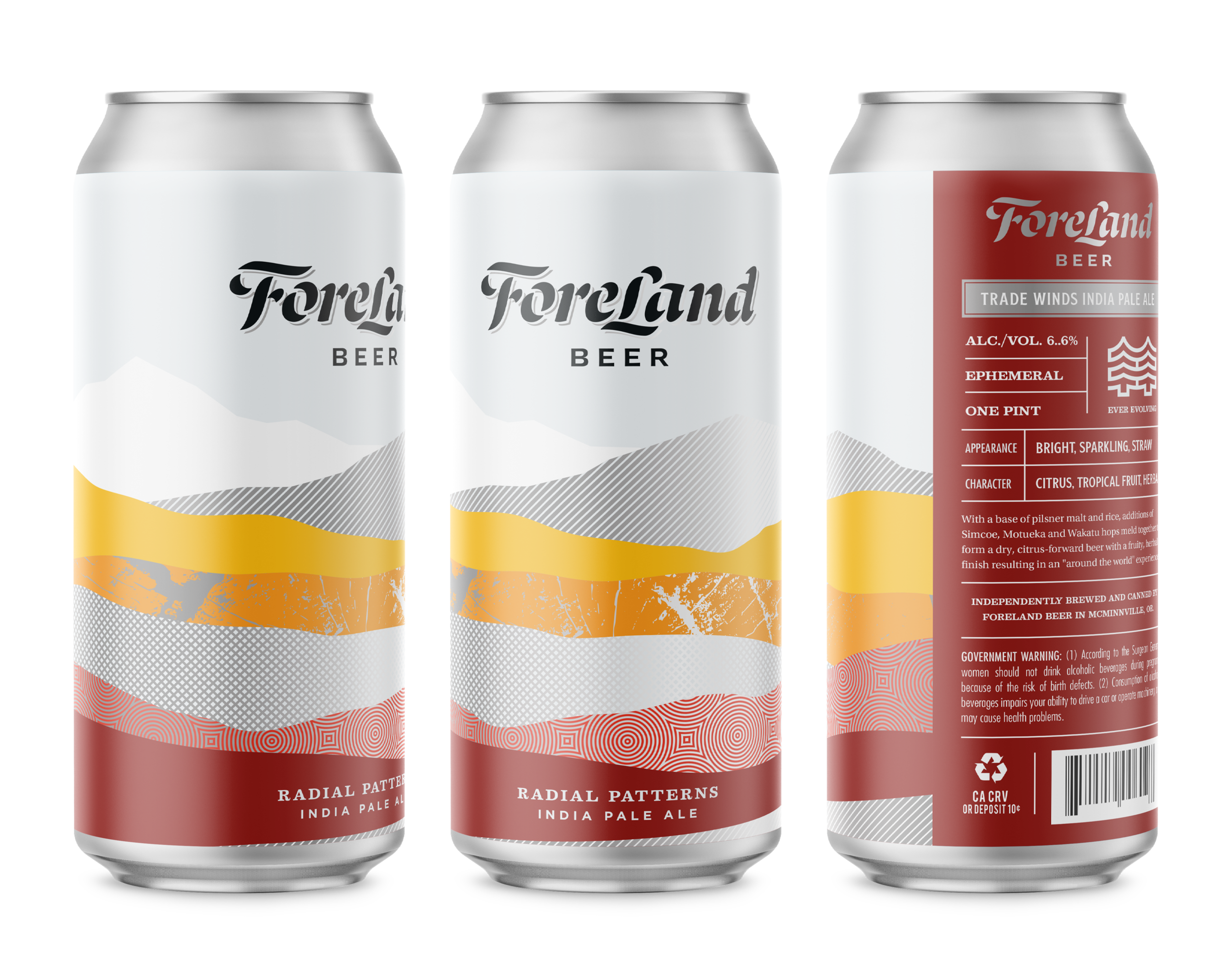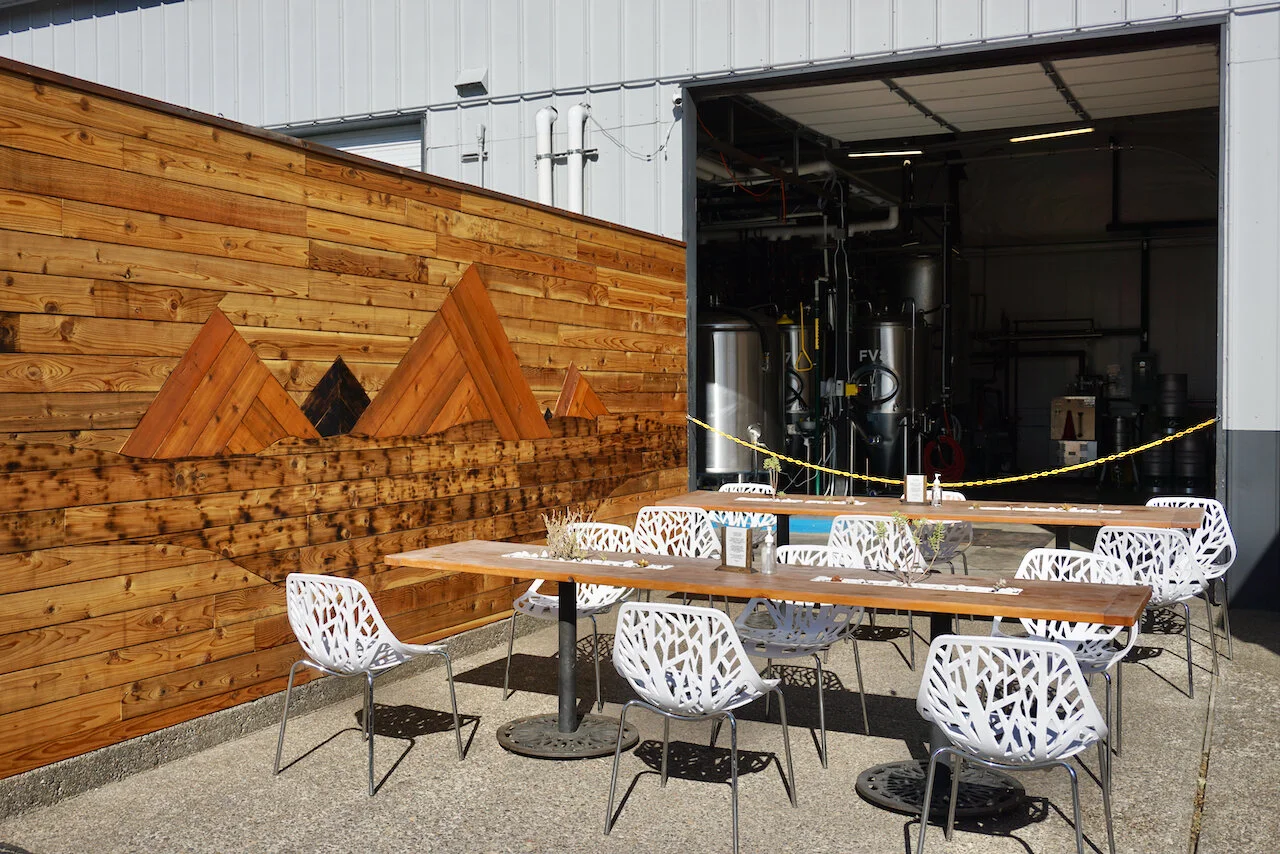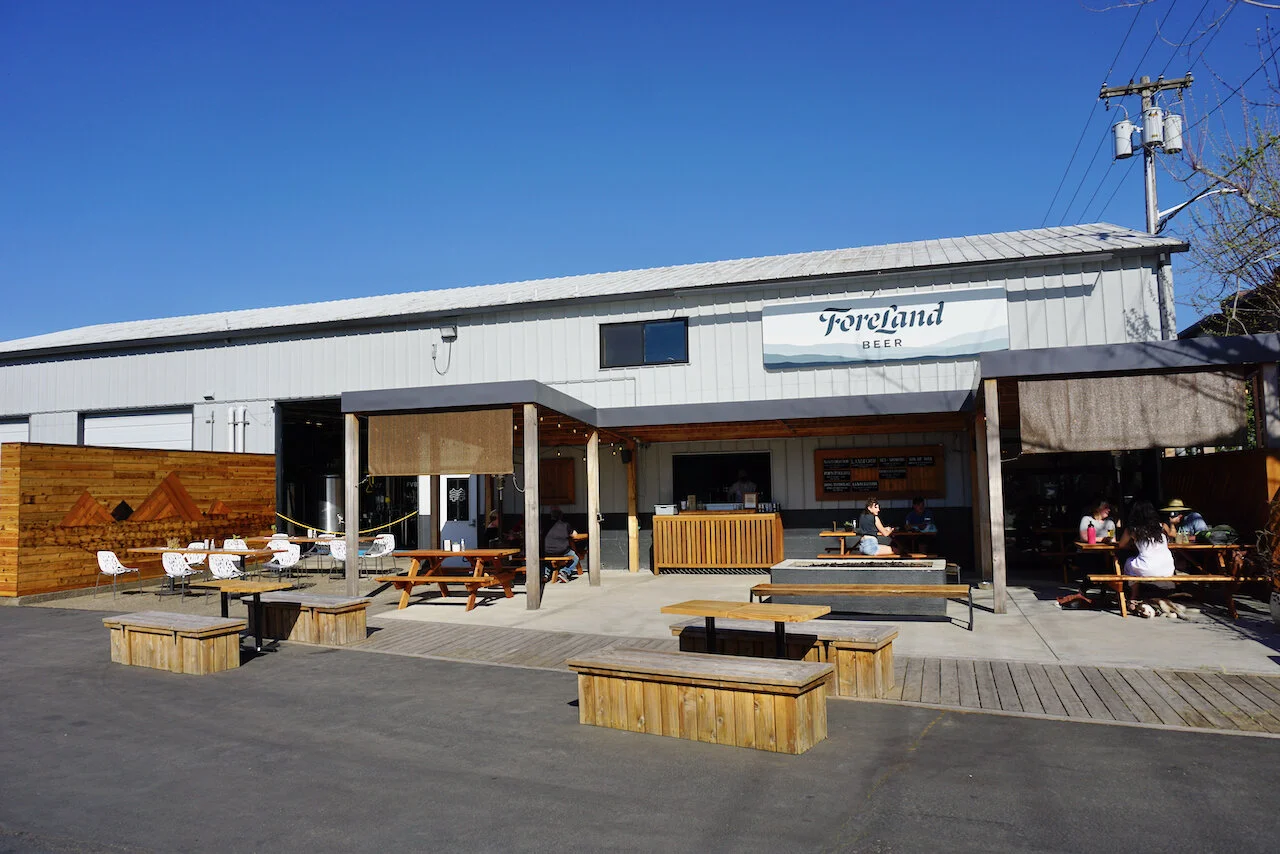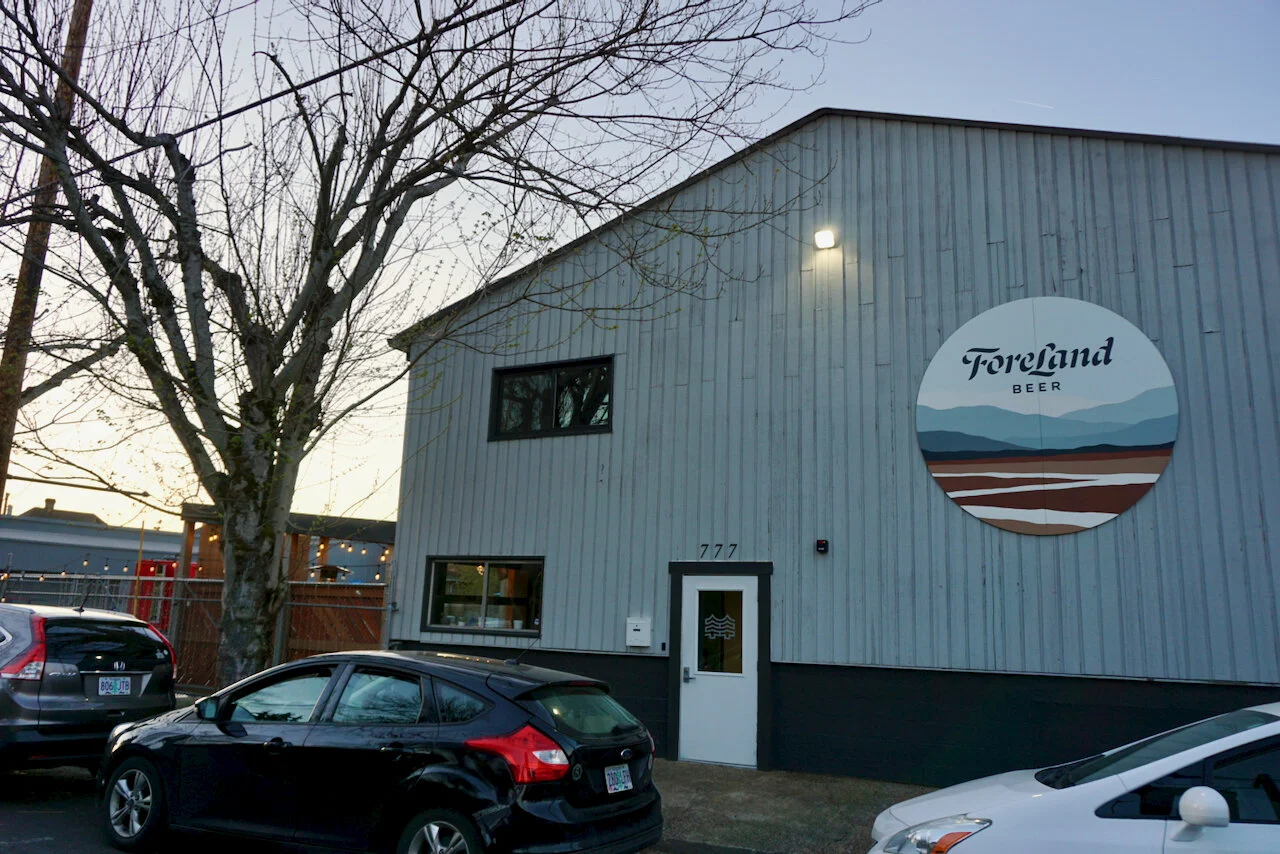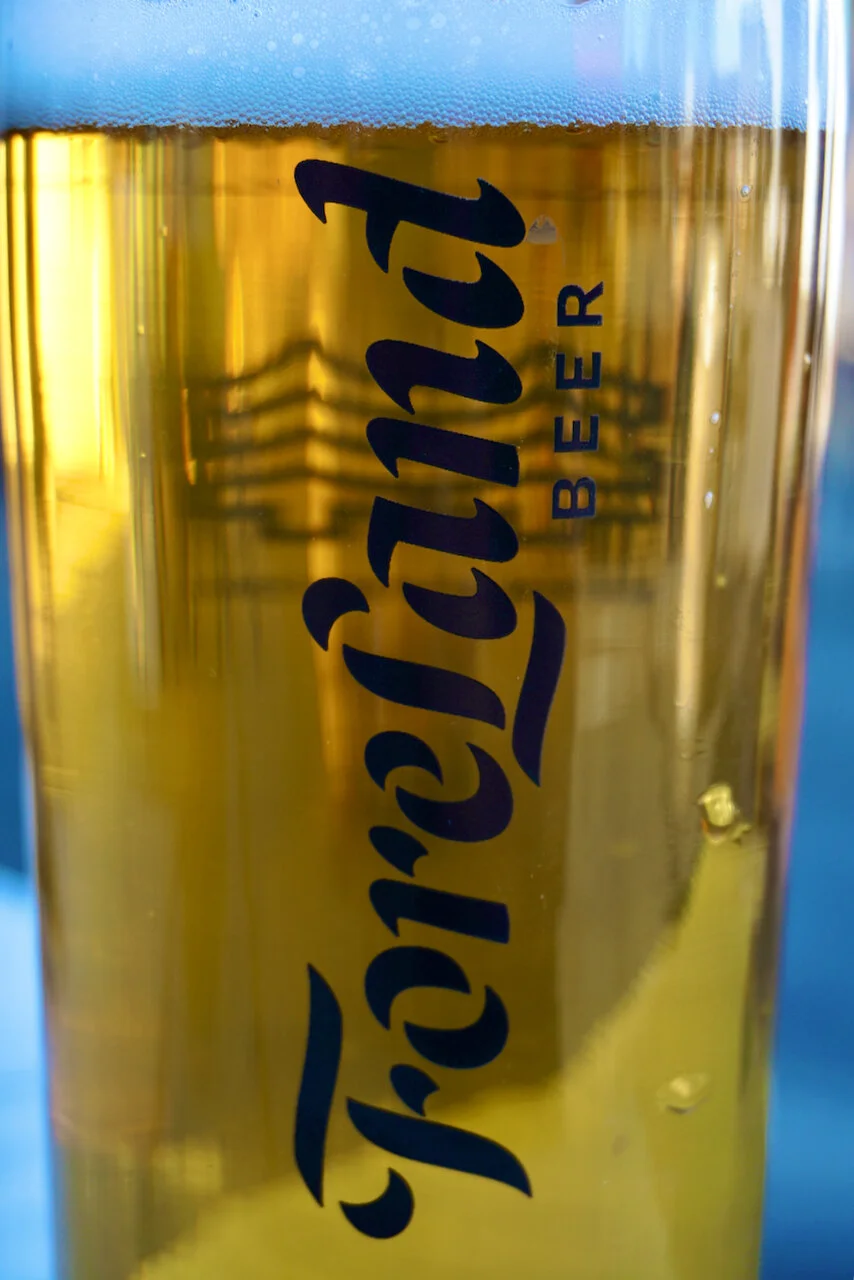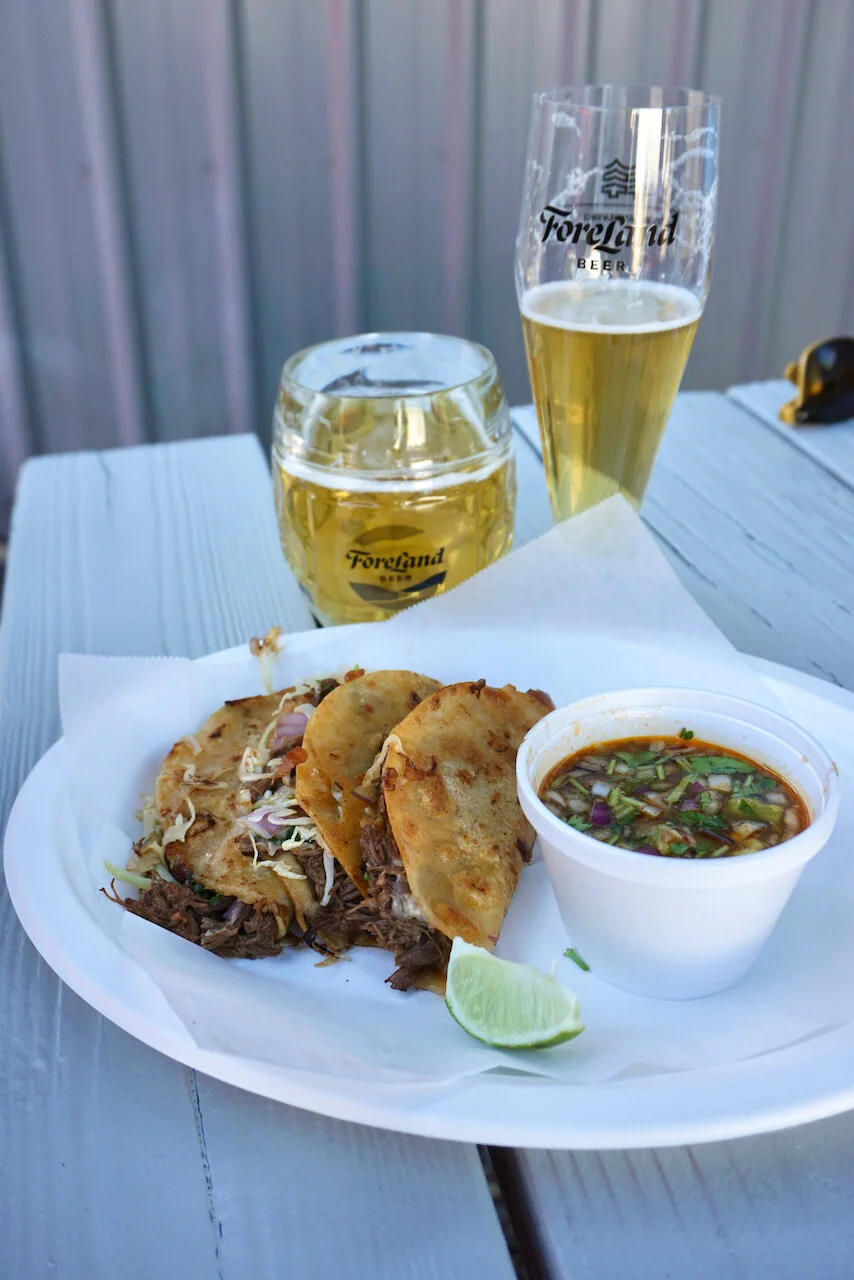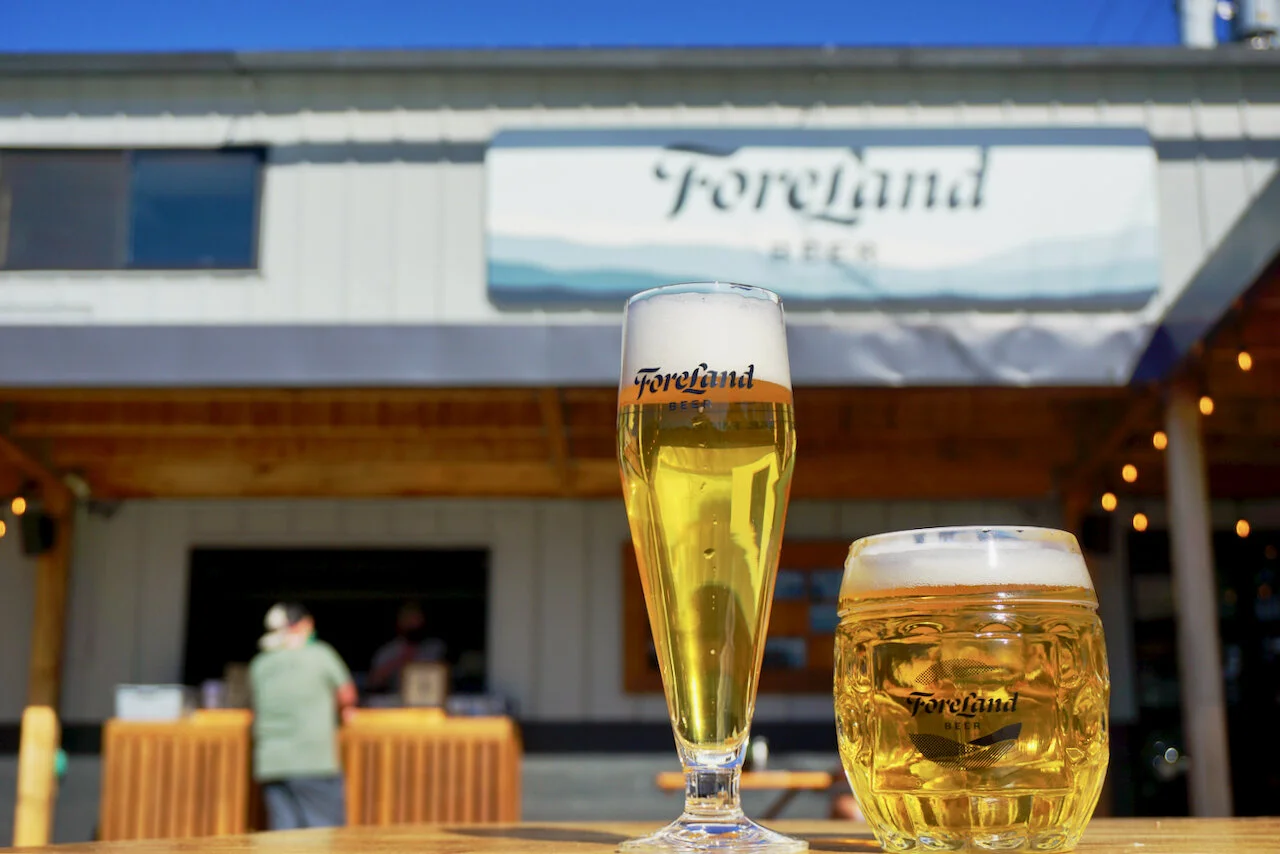ForeLand Beer: A Primary approach to Upper Left Coast brewing
It’s been 7 months since Sean Burke announced he was leaving his job as brewmaster of Von Ebert Brewing to open his own project called ForeLand Beer in Mcminnville, Oregon. In that short period of time the name changed from Landform to ForeLand, and the beers launched via the burgeoning Block 15 Distribution and Burke hired it’s first employee; brewer Aaron Copelin formerly of Moonraker Brewing. Everything seemed to be falling into place with a core lineup of two year-round IPA’s and one Lager, even if the story behind those beers and the brand seemed a little out of reach and ethereal like the fading landscape depicted in their logo. As if launching a small new brewery wasn’t difficult enough, try charting a course through a raging pandemic based solely on the quality of beer. Luckily, Burke is a capable if quiet guide more than happy to let the beers speak for themselves.
ForeLand is designing their beer brands around what Burke calls the “Primary Color Approach” that is three areas of focus wielded like colors on a palette that are beautiful on their own, but can bleed into each other to create secondary or tertiary streams on the liquid canvas. The primary beer colors of Foreland are Lager, Mixed Culture, and hop forward IPA’s and pales.
Perhaps best known for his farmhouse and wild ales, Burke was the driving force behind most of the beers at The Commons Brewery, and then lead the foeder and mixed culture program at Von Ebert, going so far as having a coolship fabricated for spontaneous fermentation. Though the funky beers may have initially gained the spotlight, Burke quickly became a force for craft lagers as well. One thing he was not known for? IPA’s, but with Foreland he will have that chance.
“I'm excited about learning more about making high quality, well crafted IPA,” says Burke.
“I've not really had to focus on it in my career but have been lucky enough to be around some true "hop whisperers" over the years and I've been taking notes,” and Burke says his new brewer Aaron Copelin is one of them.
Tracking ForeLand’s beers can be difficult as they have released no brand calendar and the website is bare but for a mailing list signup form which has not yet been utilized, even the social media is subdued. But if you have been paying attention you will notice subtle nods to regionality in flavor profiles on the ForeLand pales and lagers. So far the IPA’s have used the terms “West Coast” and “Upper Left Coast,” with nary a hazy NE-style or milkshake beer in sight.
“We are currently choosing to make clear/bright IPA's,” says Burke. And the division between clear India Pale Ales is a way of subtly nodding towards different takes on them, without claiming a single take on what the beer style can be. “We are trying to shy away from being within a certain "style" so to say as I believe that styles are really just a snapshot in time and are and should be constantly changing.”
The beers that will be marked “Upper Left Coast” are slightly maltier, and in our own tasting notes we found them much softer and less aggressive and eminently drinkable. While the beers earmarked as West Coast are just a hair lighter in color, higher alcohol, and have a noticeably stronger bitterness that pulls out more grassy, earthy and dank notes of the hops.
A consistent thread through the entire lineup of ales and lagers is an association to time and place. This harkens back to the original name of the brewery “LandForm” before an overlooked wine trademark forced a reworking of the name. No matter, the meaning is the same.
“ForeLand by definition is a landform or an area of land bordering on another or lying in front of a particular feature. That perfectly defines the Willamette Valley and in particular where McMinnville is located in relation to the coast range,” says Burke. “Beer is heavily based off of the land, and we felt that the name tied into that well.”
Instead of staking a claim on particular sub-styles of beer the brewery is focusing on regional specificity among the broader three primary streams. So in addition to Upper Left Coast you will find a “North American Lager” and “Modern Pilsner” with a new American noble hop variety called Adeena. Upstream Mend is a Pale Ale with Simcoe and Comet hops. Trade Winds IPA uses American and New Zealand hops with rice added as an adjunct. Andina Pils is a take on the currently trending “Italian-style Pilsner” though Burke is not a fan of trends.
“I get it, I understand that people want new things and as a consumer it's fun to explore the possibilities. I actually think it's great that brewers are thinking outside of the box. Creativity and innovation are important to furthering the conversation in beer, I just wish some of it tasted better to be honest.”
ForeLand’s first beers have had a strong initial reception, but the original intention to have a more core set of year-round offerings that could be continually tinkered with, and then regular seasonals and occasional one-offs. That model was turned on it’s head as a reality of the times that now demand new rather than better.
“We pretty quickly were reminded that the current climate of craft beer is one of heavy rotation and new offerings. With that we are adjusting our focus to occasionally rotating in certain core beers, but doubling down on unique one-off beers as well.”
You won’t find a smoothie sour or a pastry stout at ForeLand, but who knows as the brewers palates are as evolving as the industry. Before long though, you will be able to try wine grape hybrid beers and even housemade brewery wines.
“The beer I'm most excited to continue exploring, is the wine grape/mixed-culture beers. I have been making these for a while now, but will really double down on them here at ForeLand. Making wine will also aid in some of the approaches and techniques we will use to make these beers,” says Burke.
So far the ForeLand output has been nearly all in 16oz cans, a decision built into the business plan as the opportunity to open came about during the pandemic. Even with a canning centric operation with mobile canning runs every 2 weeks, Burke will release his farmhouse and wild ales in bottle conditioned glass.
“With these beers I will be highlighting the bounty of the state, but especially wine grapes. Being located in McMinnville the access to not only grapes but years of winemaking knowledge is highly valuable to us. It's why I chose this area.”
“Down the road we will also create a division of the company dedicated to making wine, but that is a ways off.”
ForeLand is a 50/50 partnership between Burke and David Sanguinetti, the owner of McMinnville’s The Bitter Monk and Allegory Brewing which quietly closed last October. ForeLand launched out of the Allegory space and it’s 7bbl brewhouse in central downtown McMinnville. The unfortunate fate of Allegory paved the way for ForeLand taproom, an outlet to showcase their beers on draft that hadn’t been utilized since it’s prior occupant closed down late last year.
ForeLand Brewing’s McMinnville taproom softly opened their patio recently, the wide open and sunny space is ideal for warm weather and social distancing. For now, they are keeping the small indoors area closed as the brewery moves closer to finding a Portland taproom where both Burke and Sanguinetti call home. For now McMinnville is easily the best place to try a wider assortment of Burke and Copelin’s beers including upcoming draft-only seasonal lagers and IPA’s that will evolve over time.
TAPROOM HOURS: Thursday 3pm - 8pm, Friday 3pm - 9pm and Saturday 1pm to 9pm.
777 NE 4th St
McMinnville, Oregon 97128


